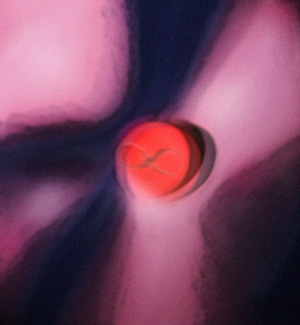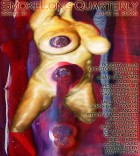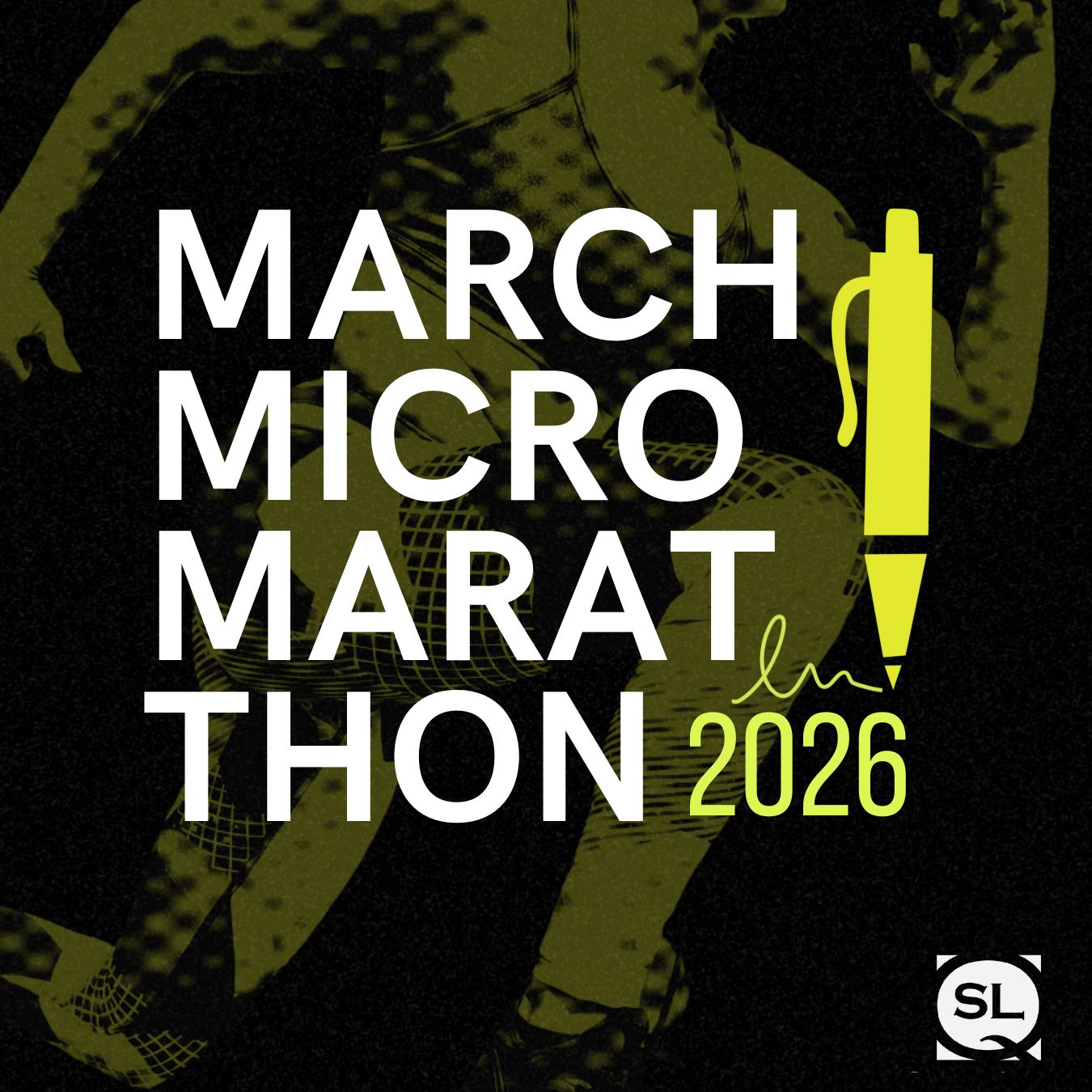Patient A has a history of heart disease. He takes a red pill that has the sign of infinity pressed into its top. Patient B has begun to eat gravel. She watches the men in the road, their shovels full of dust, and the hunger starts in her throat. Her obstetrician is kind and gives her a blue pill shaped like a bird.
Patient A and Patient B sit on opposite benches in the park. Patient A contemplates his palm—the swoop of his lifeline—and his fingers don’t stop beating, his jaw won’t unclench. Patient B spreads her knees around her drum-tight belly, and she listens. Her ear has become sharp to the sound of little things, the ants building their hill in the sand, the tumble of pebbles in the stream.
Patient A has begun to moan, a cry beginning in his throat and working its way through the bones of his skull. The sound is low and filled with deep vibrato, the reverberation of caves and cathedrals, the creak of deserts. The moan interrupts the smile on the lips of Patient B. Her eyes climb the stairs of her reverie until she finds his face, the hollow of his mouth.
“What?” she says, her palm to her cheek. “What is it?” She is looking at his teeth, the silvered pits of his molars. She smells the dark in his throat.
Patient A returns her gaze, but it’s through the warp of a dream, and it isn’t for a long moment that he can close his mouth and stop his noise. The woman and her belly, the bird’s light of her nose, seem a signal, a yellow light at sea or at the center of a blind storm. He reaches for a cap to his fear, presses down, feels the wool of terror in his heart compress. He says, “Oh. Oh god. My dear. My dear, my lovely.”
She smiles at him, afraid for everything, the love of her stomach, the shining breeze, her pocketful of soil.



 In its third year, The March Micro Marathon will be, as usual, a prompt-a-day whirlwind for 24 days. You’ll exchange drafts of micro fiction, non-fiction, and prose poetry in small groups and gather for a series of online events (all recorded for participants unable to attend live). We’ll finish with 3 competitions, and participants who are not already in SmokeLong Fitness will be invited to workshop with SmokeLong Fitness until the end of April!
In its third year, The March Micro Marathon will be, as usual, a prompt-a-day whirlwind for 24 days. You’ll exchange drafts of micro fiction, non-fiction, and prose poetry in small groups and gather for a series of online events (all recorded for participants unable to attend live). We’ll finish with 3 competitions, and participants who are not already in SmokeLong Fitness will be invited to workshop with SmokeLong Fitness until the end of April!